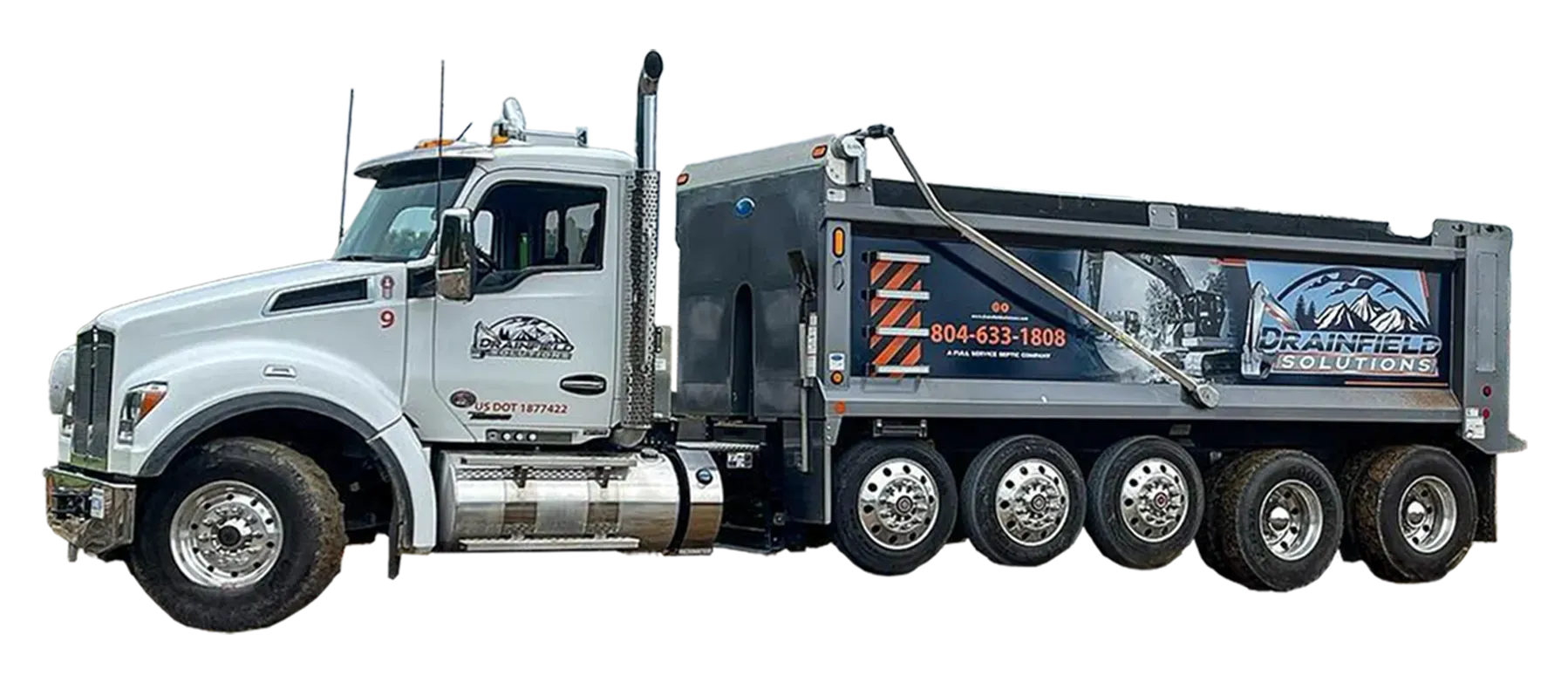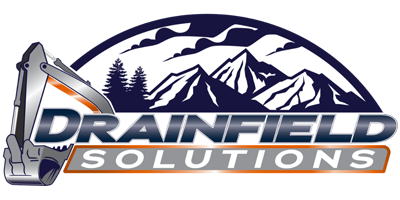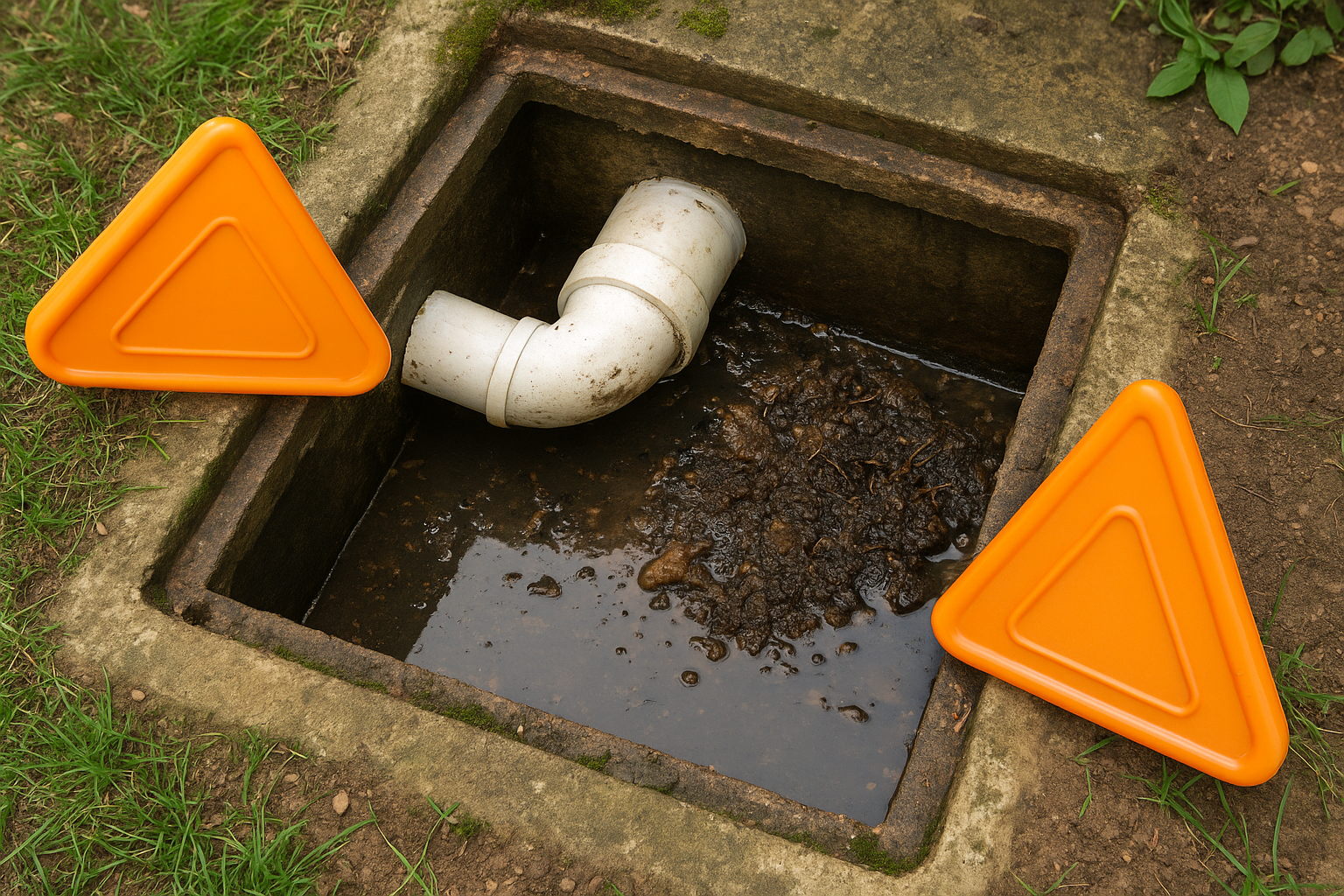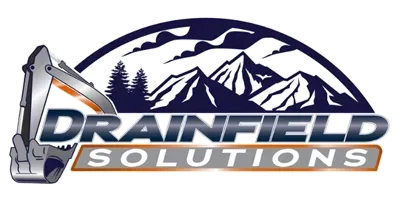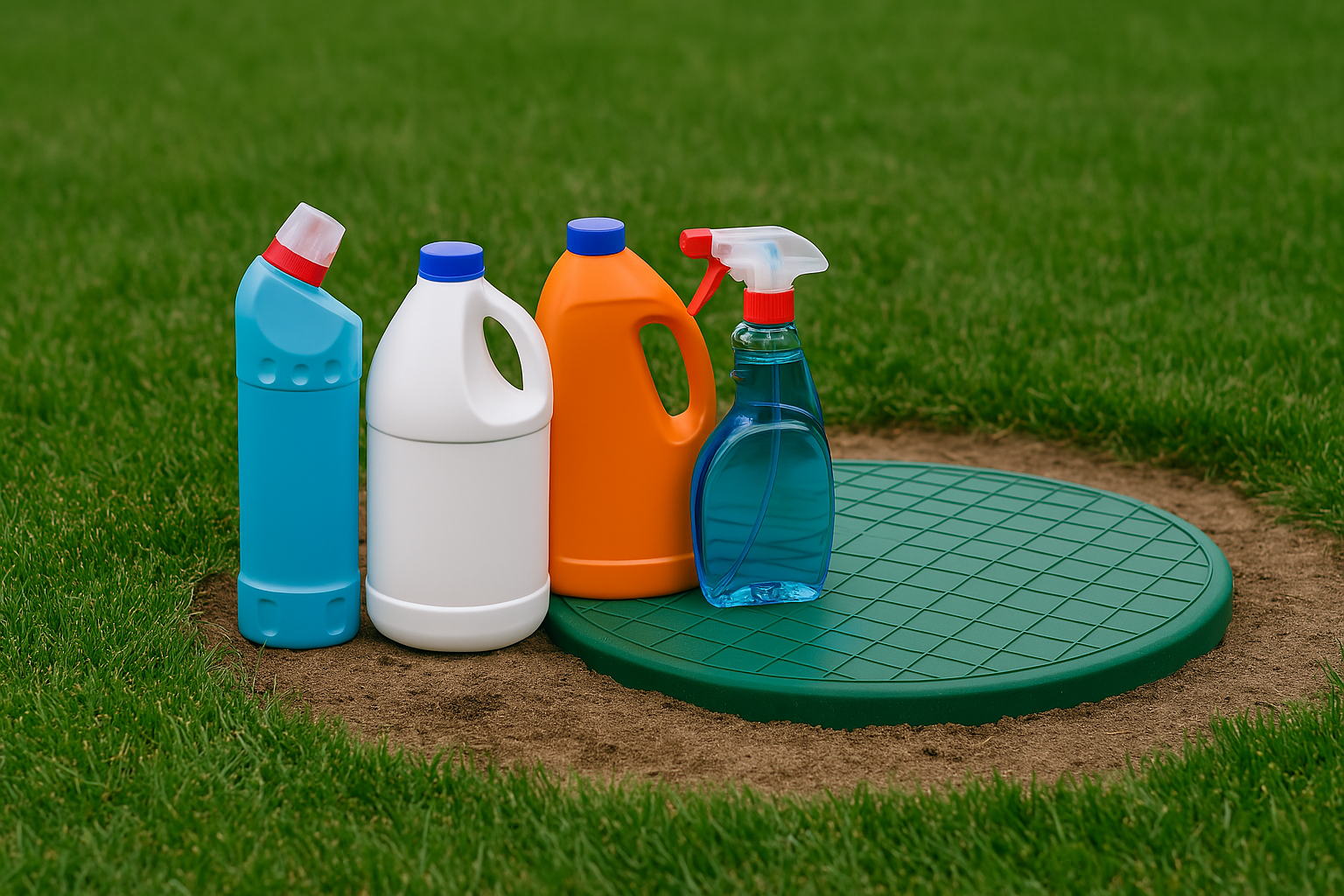
5 Household Products That Harm Your Septic System and Septic Safe Alternatives
April 17, 2025
The Impact of Household Products on Septic Systems: What You Need to Know
Your septic system is a hardworking, behind-the-scenes hero that keeps your home running smoothly. It handles all the wastewater from your sinks, showers, toilets, and washing machines, breaking it down and returning it safely to the environment. But here’s the catch: not everything that goes down your drains is septic-friendly. In fact, some common household products can wreak havoc on your septic tank, disrupt its delicate bacterial balance, and lead to costly repairs.
At Drainfield Solutions, we’ve seen firsthand how the wrong products can cause serious septic system problems. That’s why we’re here to help you understand how household chemicals impact your system—and what you can do to protect it. If you’re in Central Virginia and need expert advice or service, call us at 804-633-1808 or visit www.drainfieldsolutions.com.
Let’s dive into the dos and don’ts of using household products with your septic system.
Why Household Products Matter for Your Septic System
Your septic tank relies on naturally occurring bacteria to break down waste. These bacteria are like tiny workers that digest organic matter, separate solids from liquids, and ensure wastewater flows smoothly into the drainfield. However, many household products contain harsh chemicals that can kill these beneficial bacteria or clog your system.
Here’s why this matters:
- A disrupted bacterial balance can cause solids to build up in your tank, leading to backups or overflows.
- Harmful chemicals can seep into the soil and groundwater through your drainfield, posing environmental risks.
- Some substances can corrode pipes or damage components of your septic system, requiring costly repairs or replacements.
By understanding which products are safe—and which ones to avoid—you can keep your system functioning efficiently for years to come.
Household Products That Harm Your Septic System
Not all cleaning products are created equal. Here are some common culprits that can damage your septic system:
1. Bleach
Bleach is a powerful disinfectant, but it’s also a septic system’s worst enemy. Even small amounts can kill the bacteria in your tank, disrupting the waste breakdown process.
- Impact: Frequent use of bleach can lead to sludge buildup and drainfield clogs.
- Alternative: Use oxygen-based bleach or natural cleaners like vinegar instead.
2. Antibacterial Soaps and Cleaners
Antibacterial products are designed to kill germs—but they also kill the beneficial bacteria in your septic tank.
- Impact: Overuse of antibacterial soaps can weaken your system’s ability to process waste efficiently.
- Alternative: Opt for biodegradable soaps labeled “septic-safe.”
3. Chemical Drain Cleaners
When faced with a clogged drain, many homeowners reach for chemical drain cleaners. While effective at dissolving clogs, these products are highly corrosive and toxic.
- Impact: Drain cleaners can damage pipes, kill bacteria in the tank, and even corrode components of your system.
- Alternative: Use a plunger or a natural solution like baking soda and vinegar for minor clogs. For stubborn blockages, call a professional.
4. Powdered Detergents
Powdered laundry detergents often contain fillers that don’t dissolve completely in water. These fillers can accumulate in your tank and pipes over time.
- Impact: Undissolved particles contribute to clogs and reduce system efficiency.
- Alternative: Switch to liquid detergents labeled “phosphate-free” and “septic-safe.”
5. Cooking Oils and Grease
Pouring grease down the drain might seem harmless, but it’s one of the leading causes of septic clogs.
- Impact: Grease solidifies in pipes and tanks, blocking wastewater flow.
- Alternative: Dispose of cooking oils and grease in a sealed container instead of washing them down the drain.
Septic-Safe Alternatives
There are plenty of safe alternatives that won’t harm your septic system or the environment. Here are some natural options:
1. Distilled White Vinegar
Vinegar is a versatile cleaner that works wonders on everything from glass surfaces to clogged drains.
2. Baking Soda
Baking soda is excellent for scrubbing surfaces or deodorizing drains without introducing harmful chemicals into your tank.
3. Lemon Juice
Lemon juice not only smells fresh but also acts as a natural disinfectant.
4. Borax
Borax is a gentle yet effective cleaner that’s safe for septic systems when used sparingly.
When shopping for cleaning products, look for labels that say “septic-safe,” “biodegradable,” or “non-toxic.” These products break down easily without harming your tank’s bacteria or clogging pipes.
Tips for Protecting Your Septic System
In addition to choosing the right household products, there are simple steps you can take to keep your septic system healthy:
1. Pump Your Tank Regularly
Routine septic system pumping removes accumulated solids before they overflow into the drainfield. Most tanks need pumping every 3–5 years depending on usage.
2. Limit Water Usage
Excessive water use can overload your system and flush untreated solids into the drainfield. Spread out laundry loads and fix leaks promptly.
3. Dispose of Waste Properly
Never flush non-biodegradable items like wipes, feminine hygiene products, or kitty litter—even if they’re labeled “flushable.”
4. Inspect Your System Annually
Regular inspections help catch potential issues early before they escalate into costly repairs.
5. Educate Your Household
Make sure everyone in your home understands what can and cannot go down the drains.
The Cost of Neglecting Your Septic System
Ignoring the impact of household products on your septic system can lead to serious consequences:
- Frequent backups requiring emergency repairs.
- Damage to critical components like pipes or tanks.
- Contaminated soil and groundwater due to chemical seepage.
- The high cost of replacing a failed drainfield or installing a new septic tank.
The average cost to install a septic system ranges from $10,000–$40,000 depending on size and type—far more than the cost of regular maintenance!
Why Choose Drainfield Solutions?
At Drainfield Solutions, we’ve been helping homeowners in Caroline County, Spotsylvania County, Hanover County, Stafford County, King George County, Louisa County and the surrounding areas, protect their septic systems since 2005. As a family-owned business serving Central Virginia:
- We specialize in everything from routine maintenance to advanced installations like aerobic septic systems.
- Our team is experienced with both conventional systems and innovative alternatives.
- We prioritize eco-friendly practices that safeguard both your property and the environment.
Whether you need advice on safe cleaning products or assistance with a full-scale installation, we’re here to help! If you have questions about maintaining your septic system—or need professional service—contact
Drainfield Solutions at 804-633-1808, or visit www.drainfieldsolutions.com.
Share Post
Latest Posts
Ready to Take the Next Step?
Whether you're in need of a system inspection or regular maintenance, Drainfield Solutions is here to help. Get in touch today for reliable service you can trust.
